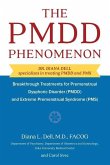Proper nutrition during pregnancy provides fundamental building blocks to support both the health of the mother and the fetus. However, careful evaluation of diet quality during pregnancy based on high quality dietary data is scarce in Canada. The associations between diet quality and perinatal and offspring outcomes have not been established. Thus, this book has the following objectives: 1) to assess overall diet quality during pregnancy using high-quality nutrition data collected in a large birth cohort in Canada, including validating the tool for assessment of diet quality in pregnancy; 2) to identify the social factors that are associated with overall diet quality during pregnancy in this Canadian sample; 3) to synthesize the evidence on the association between overall diet quality and adverse perinatal outcomes; 4) to assess the relationships between maternal nutrition during pregnancy and offspring neurodevelopment. The first manuscript describes the distribution of diet quality during pregnancy with the finding that the diet of women in Canada still is suboptimal, especially regarding whole grains and 'greens and beans', where the majority of the women did not meet recommendations. Inequalities in diet quality were observed: pregnant women who were less educated, younger, overweight or obese before pregnancy, or parous have lower diet quality. The second manuscript, a systematic review and meta-analysis of 33 cohort studies demonstrated that good diet quality during pregnancy was associated with lower risks of adverse maternal and neonatal outcomes including gestational diabetes, hypertensive disorders of pregnancy, preterm birth, small for gestational age and low birth weight. The third manuscript examined the associations between nutrition during pregnancy and indicators of offspring neurodevelopment. Statistically significant interactions between diet quality and multivitamin intake were found on the associations with cognitive and language development outcomes in the offspring at two years of age. The results indicated that adequate nutrition intake, through high quality diet or multivitamin use, is beneficial for children's neurodevelopment. This book helps fill gaps in knowledge in diet quality during pregnancy in Canada. The findings of this book are relevant to clinical and public health practice since diet quality can be used as a target for dietary interventions in pregnancy.







